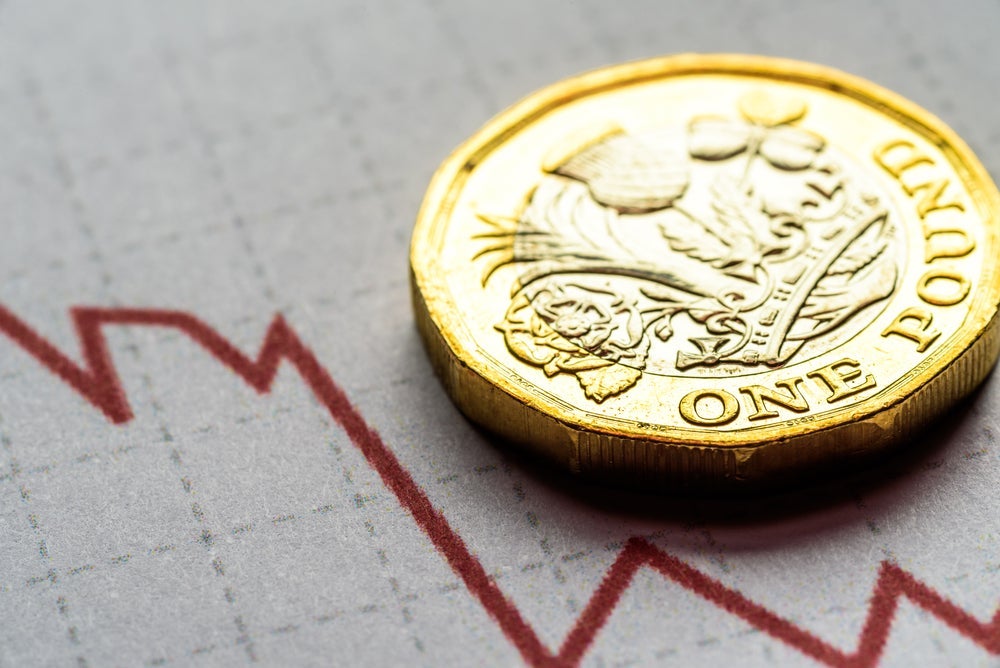
The British pound has reacted adversely to the mini-budget announced by new UK Chancellor of the Exchequer Kwasi Kwarteng as it continues its nosedive against the US dollar.
As of the afternoon of Monday 26 September, the pound had fallen to a rate of 1.0799 against the US dollar, a record low.
Why is the pound falling so fast (and will it affect foreign investors)?
Kwarteng's tax cut announcements in the mini-budget are aimed at boosting the UK economy and pulling it from the clutches of a looming recession. A weakening pound may be a short-term gamble for a longer-term payout in the government’s eyes. However, public opinion is wavering as many households face a cost of living crisis.
Inflationary pressures impact the strength of a currency as they cause prices to rise and demand for goods to fall. Falling demand negatively impacts the domestic economy – causing foreign investors to look less favourably on the UK – and leads to a fall in demand for the pound, weakening the currency. The steep decline in the pound against the US dollar since the Chancellor’s announcement would appear to show that foreign investors are reducing their demand for the pound. The worry now for the UK is a potential period of stagflation – where the economy enters a recession and continues to experience high inflation levels.
How well do you really know your competitors?
Access the most comprehensive Company Profiles on the market, powered by GlobalData. Save hours of research. Gain competitive edge.

Thank you!
Your download email will arrive shortly
Not ready to buy yet? Download a free sample
We are confident about the unique quality of our Company Profiles. However, we want you to make the most beneficial decision for your business, so we offer a free sample that you can download by submitting the below form
By GlobalDataInvestors are pivoting towards a more ‘safe haven’ currency – the US dollar. The dollar has strengthened after the Fed’s interest rate rise. Additionally, the US has been less impacted by the Russia invasion of Ukraine when compared with many European countries.
What impact will a falling pound have?
Economically, a weakening British pound makes it more expensive for UK companies to import goods and services from abroad. These can be final goods or services and/or components that are used to make other goods. Regardless, the result is that a weakening currency will likely see prices increase. An increase in price levels, given the current difficult times consumers are facing, will likely see demand drop. This in turn will place further burdens on the UK’s economic growth prospects.
To prevent this, the Bank of England may have to further raise interest rates. Although the concept is to encourage savings to curb escalating inflation, rising interest rates also mean millions of households will see mortgage repayments increase. Given this is a significant part of many people's household budgets, this will only add to the cost of living crisis, especially when coupled with rising utility bills, which are caused more by supply-led inflation than demand.
A weak pound also means UK holidaymakers will get less for their money when abroad. It was only in 2008 when a British traveller would get two dollars for every one British pound. Now, they are only getting an extra seven dollars for every £100 they trade.
What is the state of the UK's public finances?
According to the UK’s Office for National Statistics, public sector net borrowing excluding public sector banks was £11.8bn in August 2022, £2.6bn less than in August 2021, but £6.5bn more than in (pre-Covid-19) August 2019, when it was £5.3bn. Government debt interest payable has also increased significantly, although this has been mainly due to the effect of Retail Prices Index changes on index-linked gilts.
The impact of the UK cutting taxes and increasing its borrowing at a time of soaring inflation is risky.
How can the pound recover?
The situation regarding the pound can only improve if there is an improvement in the UK economy. A prosperous economy will encourage foreign investment and, in turn, increase demand for the pound, therefore increasing its strength. Speculators, another driver of foreign exchange rates, will also begin to demand more British pounds should the UK economy drive upwards.
Also, the Bank of England may look to further increase interest rate levels (as it stated it would not shy from doing on Monday 26 September). This, in theory, would entice more investors to save in UK banks, increasing the demand for the pound. Increasing interest rates may also help curb inflation. Getting inflation under control may lead to UK goods and services being more competitive internationally, increasing demand for the pound in order to buy such commodities.







